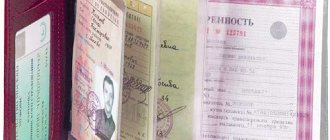A will is a kind of one-sided transaction, the condition of execution of which is the death (recognition as deceased) of the person who owns the inheritance and wishes to distribute it among his heirs.
But it is precisely the deferred execution of the transaction that opens questions about the validity period of the testamentary document and the acceptance of inheritance under it.
- Requirements for a will
- Duration of the will
- Validity period of a will for inheritance
- Consequences of missing the deadline for accepting an inheritance
- Restoring the deadline
- In what cases is it not necessary to restore the deadline for accepting an inheritance?
- Time limits for refusal to inherit under a will
- Statute of limitations for a will
Requirements for a will
The law imposes special requirements for making a will. If the form and (or) certification of the will is violated, it loses its legal force and cannot be used to inherit property.
The Civil Code provides for 4 types of wills:
- inheritance agreement or will (Part 1 of Article 1118 of the Civil Code of the Russian Federation);
- joint will of the spouses (Part 4 of Article 1118 of the Civil Code of the Russian Federation);
- closed will (Article 1126 of the Civil Code of the Russian Federation);
- a will in emergency circumstances (Article 1129 of the Civil Code of the Russian Federation).
Each of them has its own specific shape. But for most, the following requirements apply.
- The document must be certified by a notary or another person authorized by law. This requirement also applies to a will in an emergency, provided that the maker survives and the threat to his life has passed.
- The will must indicate the date and place of drawing up the document, information about the testator and heirs.
- Information about the inheritance must be available. You can transfer by inheritance not only existing real estate, rights, and other valuables, but also property that the testator intends to acquire in the future.
- The document is signed by the testator personally. If, due to objective reasons, he cannot sign the will with his own hand, a trusted person does this for him in the presence of witnesses.
Duration of the will
In civil law there is no limitation on the limitation period for wills drawn up in accordance with the requirements of the law. Therefore, there is no fundamental difference in the date of execution of the document, provided that there were no other wills or orders after it revoking it.
However, there are some reservations in the law. In particular, we are talking about wills drawn up in emergency circumstances. According to Art. 1129 of the Civil Code of the Russian Federation, the validity of a testamentary document is limited:
- a month from the date of drawing up the act, if the emergency circumstances have passed, nothing threatens the life of the testator:
- 6 months from the date of death of the testator (recognition of the testator as deceased), if the death occurred under the influence of (or as a result of, or during) extraordinary circumstances.
But all this concerns only the legal force of the document relative to the time of its preparation. For the heirs, it is important to have a slightly different validity period - the period when they can apply the document.
The final stage is obtaining the status of the final owner
Having received the long-awaited certificate of recognition of the status of the hereditary owner by law and beginning to manage the inheritance in full, the heir will not yet be considered the real owner when it comes to registered valuables - real estate, transport, securities. All this must first be documented in your name according to the general rules. That is:
- real estate should be taken into account in a new way in the Unified State Register of Real Estate;
- re-register vehicles at the State Traffic Safety Inspectorate;
- Participation in the authorized capital, deposits, shares must be registered under your own name.
And so on. The basis for re-registration of papers will be a certificate, that is, title documents will be available only after its receipt. However, the ownership itself comes from the moment of death of the previous owner. Eg:
Vitaly’s father died on January 19, 2017, leaving his son the house. Vitaly was able to come home only on May 30, 2017, on the same day he opened an inheritance case, and submitted a full application for the certificate on June 02, 2017. The certificate was ready a month later, but Vitaly was able to come back for it only in January 2018 Accordingly, ownership of the house was registered on January 23, 2018. However, Vitaly was considered the owner of the estate already from January 19, 2017, and the utility services filed claims against him for unpaid bills from the beginning of 2017 on legal grounds.
Fulfilling the task of opening an inheritance case after the death of the testator requires a careful approach, free time and a lot of attention, especially when it comes to large inheritances. In these cases, it is better not to do without a lawyer.
If you find an error, please select a piece of text and press Ctrl+Enter.
Didn't find the answer to your question? Find out how to solve exactly your problem - fill out the form below or call right now: +7 (ext. 697) (Moscow) +7 (ext. 281) (St. Petersburg) +8 (ext. 198) (Russia) It's fast and free!
Validity period of a will for inheritance
The law determines that heirs, regardless of the method of acquiring the inheritance, must apply for its registration within a certain period. For heirs under a will, it is 6 months from the date of opening of the inheritance. This requirement is established by Art. 1154 of the Civil Code of the Russian Federation.
It is believed that the allotted time is enough for interested parties to collect the necessary documents and contact the notary with the appropriate application. Consequently, the validity period of the will after the death of the testator will be only 6 months for the heirs, as in the case of the usual acceptance of inheritance by law for heirs of the first stage.
Current state duty rates
One of the not very pleasant aspects of the inheritance procedure is the state duty and the expectation of a large tax on the property received. The first one today is calculated as a percentage and amounts to:
- 0.3% of the entire value of the inheritance for close relatives, but not more than 100 thousand rubles;
- 0.6% of the same value for other heirs, but not more than 1,000,000 rubles.
Those who lived with him at the time of the death of the testator, as well as relatives of those who died for the good of the Motherland and those repressed during the Stalin years, are exempt from this tax. In addition, disabled people of groups 1-2 have 50% benefits.
As for concerns about tax, since 2006 in Russia heirs have not paid it in any cases, regardless of the degree of relationship with the testator.
Consequences of missing the deadline for accepting an inheritance
Since the validity of a will after the death of the testator is limited to 1/2 year, the heir should declare himself as soon as possible. The fact is that if you miss the deadline, you will have to prove your right to inherit property under a will.
If the heir does not contact the notary in a timely manner, the inheritance will be distributed among the heirs according to the law of the corresponding line of inheritance. Among the first to claim the property of the deceased are:
- legal spouse who survived the deceased;
- children, and if they die before the testator - his grandchildren;
- parents.
Brothers and sisters, grandparents are called upon to inherit in order of the second priority and only if none of the primary heirs has declared themselves.
There are 7 inheritance queues in total. And if none of the heirs legally applies for the inheritance, or is deemed unworthy, or for other reasons does not accept the inheritance, the property of the deceased will go to the municipality as escheat (Article 1151 of the Civil Code of the Russian Federation).
Of course, the heir under the will will be able to claim his rights to the property by judicially restoring the period for accepting the inheritance. But even if the court recognizes the pass as valid, problems cannot be avoided.
The heir under a will has the right to claim the property due from the heir who received the inheritance within the framework of the corresponding line of inheritance. But if he sells the property, then it will no longer be possible to return the apartment or land plot. The new owner is considered a bona fide purchaser, and therefore is not obliged to return anything.
If an apartment or other real estate has been transferred to the municipality, it will be returned provided that it has not yet been transferred to new residents under a social tenancy agreement. If the contract has already been drawn up, then nothing can be done.
Therefore, the heir under the will will have to demand compensation, the amount of which is determined by the market value of the property at the current moment. But this does not mean that you will be able to quickly receive the required compensation. Such enforcement proceedings last for years.
How to make a last will that will be fulfilled unconditionally
First of all, consult on this matter with the notary who will keep the will, or with the agent of the funeral service with whom the contract for conducting funeral events will be concluded. Experienced specialists will help resolve the most difficult dilemmas:
How to leave DPR property? Impossible in principle, since such a state entity does not officially exist. But it is permissible to transfer money to a Fund that supports one side or another of the conflict.
How to deprive all relatives of their inheritance? The phrase “No one and nothing” essentially implies giving the property the status of escheat, but at the same time it goes to the state, which means that the heir still exists.
For questions regarding holding a funeral ceremony in strict accordance with your wishes, we suggest consulting with specialists from our City Ritual Service of St. Petersburg. You can get detailed answers to your questions by calling 8. We answer calls around the clock.
Restoring the deadline
The term can be restored both in court and out of court. In the first case, you will have to prove that the deadlines were missed for a good reason. It could be:
- ignorance of the death of the testator, provided that the heir really could not establish the fact of the opening of the inheritance;
- serious illness that precludes applying for inheritance personally or through proxies;
- long-distance business trip, participation in a field expedition, etc.
The main thing is that the court considers the reason valid. For example, ignorance of the legislation on the deadline for accepting an inheritance will not be considered a basis for reinstating the deadline. But a rare personal connection can be regarded as a valid reason for late application for an inheritance.
Due to frequent updates to legislation and the legal uniqueness of each situation, we recommend obtaining a free telephone consultation with a lawyer. You can ask your question by calling the hotline number 8 (800) 555-40-36 or write it in the form below.
An alternative to judicial restoration of the period for accepting an inheritance is conciliation. To do this, the heir receives written consent from other heirs who accepted the inheritance in a timely manner. He can explain to other heirs why the deadline was missed and whether the reason is really valid. The notary will simply formalize the inheritance according to the will, if the other heirs have expressed their written consent to this.
In what cases is it not necessary to restore the deadline for accepting an inheritance?
Since Art. 1153 of the Civil Code of the Russian Federation determines the possibility of actually accepting an inheritance; the will will be valid a year later, and 5 and 7 years after the death of the testator.
According to the position of the Supreme Court, the issuance of a certificate of the right to inheritance, as well as the state registration of inherited property (if it is subject to state registration) are the right and not the obligation of the heir.
Subject to the provisions of Art. 1152 of the Civil Code of the Russian Federation, an accepted inheritance belongs to the heir from the date of opening of the inheritance. Therefore, the main thing is to have time to take steps to actually accept it within 6 months from the date of opening of the inheritance.
If the heir decides to dispose of the acquired property - sell, exchange, donate, bequeath or use as collateral, he will have to confirm the fact of acceptance of the inheritance.
It will be enough to provide the notary with evidence of actual acceptance of the inheritance. For this purpose, documents are used, from which it follows that the heir:
- paid the debts of the testator;
- received money on behalf of the testator after his death;
- incurred expenses in relation to the testator's property;
- took measures to ensure the safety of property transferred by inheritance;
- owns, uses and manages inherited property.
Important! If the notary doubts the evidence presented, the fact of acceptance of the inheritance will have to be proven in court. Before going to court, you must submit the collected documents to an inheritance law lawyer. He will determine their legal status for the court. If necessary, the lawyer will independently collect the necessary package of documents and evidence.
Time limits for refusal to inherit under a will
Heirs under a will do not always want to accept the inheritance. This may be due to the debt obligations of the testator, or the desire to transfer the property of the deceased to the heirs of the order established by law.
In any case, the heir under the will has the right not to accept the inheritance and refuse it. The period for refusal is the same 6 months from the date of opening of the inheritance. The refusal itself must be formalized in writing by a notary.
Important! A notarized renunciation of inheritance cannot be revoked, including in court. You can learn about the terms, procedure and form of refusal at an initial free consultation with a lawyer.
If the will specifies a minor child (or a person deprived of legal capacity), you will have to obtain the consent of the guardianship authorities to formalize the refusal of inheritance. This document is issued if the inherited property becomes a burden for the ward.
There is an easier way to refuse inheritance under a will: not to apply for it at all. After 6 months, the legal heirs will be able to receive certificates of inheritance, which will terminate the rights of the heir under the will.
Compilation and storage
A will refers to unilateral transactions and requires notarization (Article 1124 of the Civil Code of the Russian Federation). The testator contacts the notary at the place of residence, opening of the inheritance or at the location of the real estate. In some cases provided for in Art. 1127 of the Civil Code of the Russian Federation, an act of unilateral will can be drawn up without the presence of a notary, but is equivalent to those notarized.
When a person is in a hospital, the head physician or a member of the medical staff acts as the certifier; among sailors it is the captain of the ship; for the military - the unit commander; the prisoners have a boss. However, the document does not remain with these persons, but at the first opportunity is sent through the bodies exercising control in the field of notaries to a notary located at the place of residence of the testator.
The number of copies of the act drawn up in accordance with Art. 44.1 of the Fundamentals of the Legislation of the Russian Federation on notaries is equal to the number of participants in the transaction. In practice, 2 copies are drawn up: 1 is kept by the notary, and the second by the owner of the distributed property.
Statute of limitations for a will
Do not forget about the need to comply with the deadlines for challenging a will. Russian civil legislation has adopted the following limitation periods, which allow one to challenge a testamentary document and distribute the property of the deceased among the heirs according to the law.
- 1 year for contested wills. These include documents drawn up under threats, blackmail, pressure, breach of trust and other influence of third parties.
- 3 years for void wills. These are considered documents drawn up in violation of mandatory legal requirements. For example, this may be the absence of a notarization, the date of drawing up the document, etc.
The limitation period for this type of case is not counted from the date of opening of the inheritance. The countdown begins from the moment when the interested party either learned or should have learned about the violation of his legal rights and interests.
Due to frequent updates to legislation and the legal uniqueness of each situation, we recommend obtaining a free telephone consultation with a lawyer. You can ask your question by calling the hotline number 8 (800) 555-40-36 or write it in the form below.








